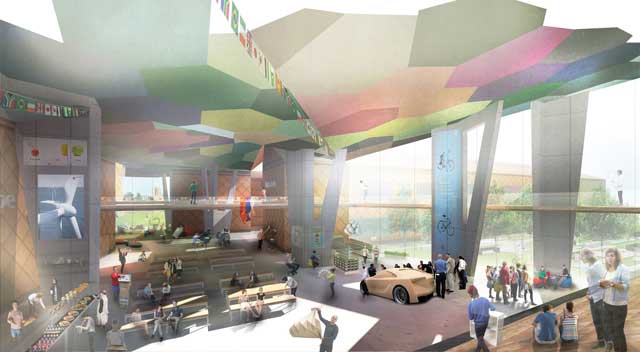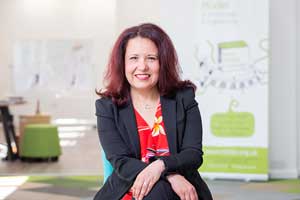Through project-based learning, NMiTE aims to create practical engineers in three years. Steve Dale reports.

A radical new approach to the training of future engineers is set to be taken forward in Hereford where Britain’s first new university for 40 years was inaugurated in October.
Known as the New Model in Technology & Engineering (NMiTE), the establishment is due to welcome its first intake of 50 “pioneer” students in September next year. They will experience a unique curriculum favouring project-based learning over traditional lectures and examinations.

“We want to challenge the status quo and turn engineering education on its head,” says NMiTE’s acting chief executive Elena Rodriguez-Falcon. “NMiTE is developing the world’s most radical learning environment for engineering students so we can deliver creative, confident, work-ready problem solvers, with the qualities to become the country’s top engineers and industrial innovators.”
Students will gain an Integrated Engineering master’s degree over the course of three 46-week years – as opposed to the usual four – through an intensive and accelerated programme of learning.
For the first two and a half years they will work collaboratively on real projects provided by UK employers in bespoke engineering studios which are being built at the new campus.
These projects will be undertaken under the close supervision of educators – themselves engineers – with students able to experience a broad range of different engineering disciplines and take on different roles within the team. Emphasis will be placed on problem solving and the trainee engineers will be allowed to “fail safely” in order to identify gaps in their knowledge.
Throughout the course the educators will keep records of project outcomes and individual contributions, and make sure that the key concepts and theory that engineers need to master are being developed. By the end each student will have amassed a portfolio of experience.
Ms Rodriguez-Falcon explains: “We will test how 100% project-based learning fares against traditional learning. From day one our students will start training effectively as engineers, behaving and working as engineers on real projects. This is very different from what exists around the world.”
She adds that NMiTE will seek to “bridge the gap” between demand for skilled engineers and numbers currently being produced by universities. Estimates suggest Britain has an annual shortfall of at least 22,000 engineering graduates.
In addition the new university’s approach to training aims to produce graduates who are “work-ready” from day one of their employment in the industry.
Professor Dave Allan of NMiTE’s Founding Faculty adds: “The very nature of NMiTE’s approach will develop work-ready graduates, who while not specialists in maintenance engineering, for example, will have the technical, project management and planning skills to take on any aspect of engineering, including to develop effective maintenance strategies.”
For the final 22 weeks of the programme students will undertake a placement in industry to show they are able to operate as fully competent engineers.
NMiTE is backed by engineering businesses, Herefordshire Council, the University of Warwick, Olin College of Engineering in the US, professional engineering bodies and the Government.
Following the inauguration ceremony at Hereford Cathedral, universities minister Sam Gyimah said: “Innovation must remain the driving force behind our higher education system. NMiTE embodies this by engaging employers, experts and academics to develop courses and opportunities that are right for students, and for the engineering sector.”
Chair of the board of trustees overseeing NMiTE’s creation Dame Fiona Kendrick said: “NMiTE aims to be a centre for innovative engineering education that broadens participation – especially for women.”
Traditional entry requirements are being shaken up so that applicants will not necessarily be expected to have A Levels in maths and physics. This, it is hoped, will help to encourage gender balance among the intake.
Activity to get the new university ready includes work to complete the new campus, design student services and develop the new curriculum, in collaboration with employers.
It is planned to take a showcase mobile engineering studio out on the road to make young people, parents and teachers aware of the opportunity offered by NMiTE and the approach it will take to engineer training.
Subject to validation, the new university will open in September next year and by 2032 intends to be educating more than 5,000 engineering students.

